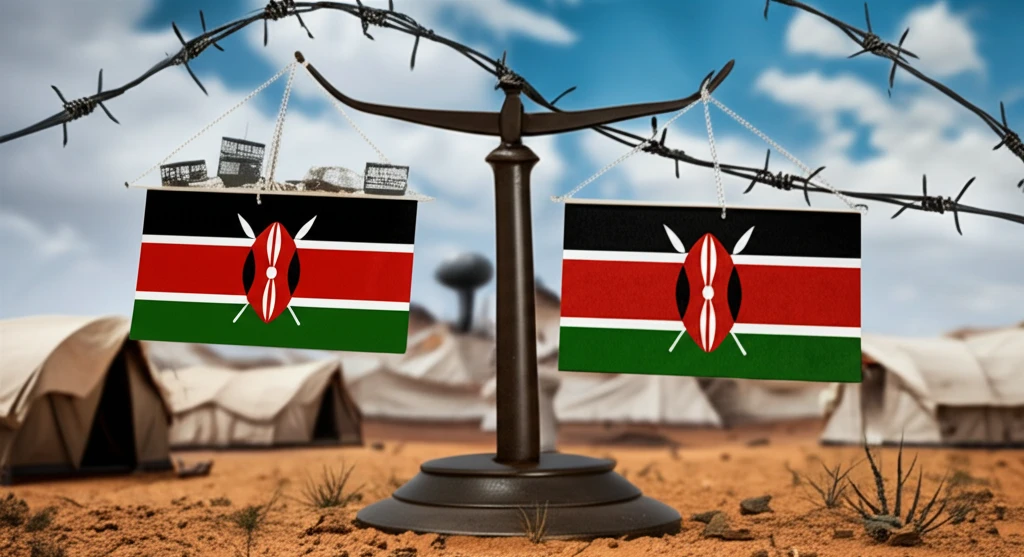
Kenya's Refugee Dilemma: Balancing Security, Human Rights, and Legal Obligations
"An in-depth look at Kenya's parallel legal regime on refugees, exploring the tension between national security concerns and the guarantee of rights."
Kenya, a nation with a long history of hosting refugees, finds itself at a crossroads. The delicate balance between ensuring national security and upholding the rights of those seeking asylum within its borders has become increasingly strained. This tension is reflected in what some observers describe as a 'parallel legal regime,' where the government's security-driven policies sometimes clash with international legal obligations and constitutional guarantees.
The Constitution of Kenya 2010 incorporates international law as part of its legal framework, specifically highlighting customary international law and ratified treaties. This commitment is enshrined in Articles 2(5) and 2(6), stipulating that international legal rules and conventions ratified by Kenya are integral to the law of the land. However, the practical application of these principles has been challenged by a series of government policies and directives aimed at managing the refugee population, particularly in the wake of increased security threats.
This article delves into the intricacies of Kenya's refugee policies, examining the evolution of its legal framework, the impact of security concerns on refugee rights, and the role of the Kenyan courts in mediating these competing interests. By analyzing key legal decisions, government directives, and scholarly perspectives, it seeks to provide a comprehensive understanding of the challenges and opportunities facing Kenya in its treatment of refugees.
How Does Kenya's Legal Framework Address Refugee Rights?

Kenya's legal landscape regarding refugees is shaped by a complex interplay of international law, constitutional provisions, and domestic legislation. While the Constitution embraces international legal norms, the application of these norms is often filtered through the lens of national security concerns. This has led to instances where the rights of refugees are seemingly curtailed or restricted in the name of public safety.
- International Law: Kenya is party to key international instruments such as the 1951 Refugee Convention and its 1967 Protocol, as well as the OAU Convention Governing the Specific Aspects of Refugee Problems in Africa.
- Constitutional Guarantees: The Kenyan Constitution guarantees fundamental rights and freedoms to all, including refugees, such as the right to human dignity, freedom of movement, and protection against discrimination.
- Domestic Legislation: The Refugee Act of 2006 provides the legal framework for refugee status determination and the management of refugee affairs in Kenya.
Finding a Sustainable Balance: The Path Forward for Kenya's Refugee Policy
Kenya's refugee policy stands at a critical juncture. The need to address legitimate security concerns must be balanced with the imperative to uphold the rights and dignity of refugees. Moving forward, a more nuanced and comprehensive approach is needed, one that integrates security considerations with human rights principles and international legal obligations. This requires strengthening legal frameworks, promoting community integration, and fostering greater collaboration between government agencies, international organizations, and civil society.
